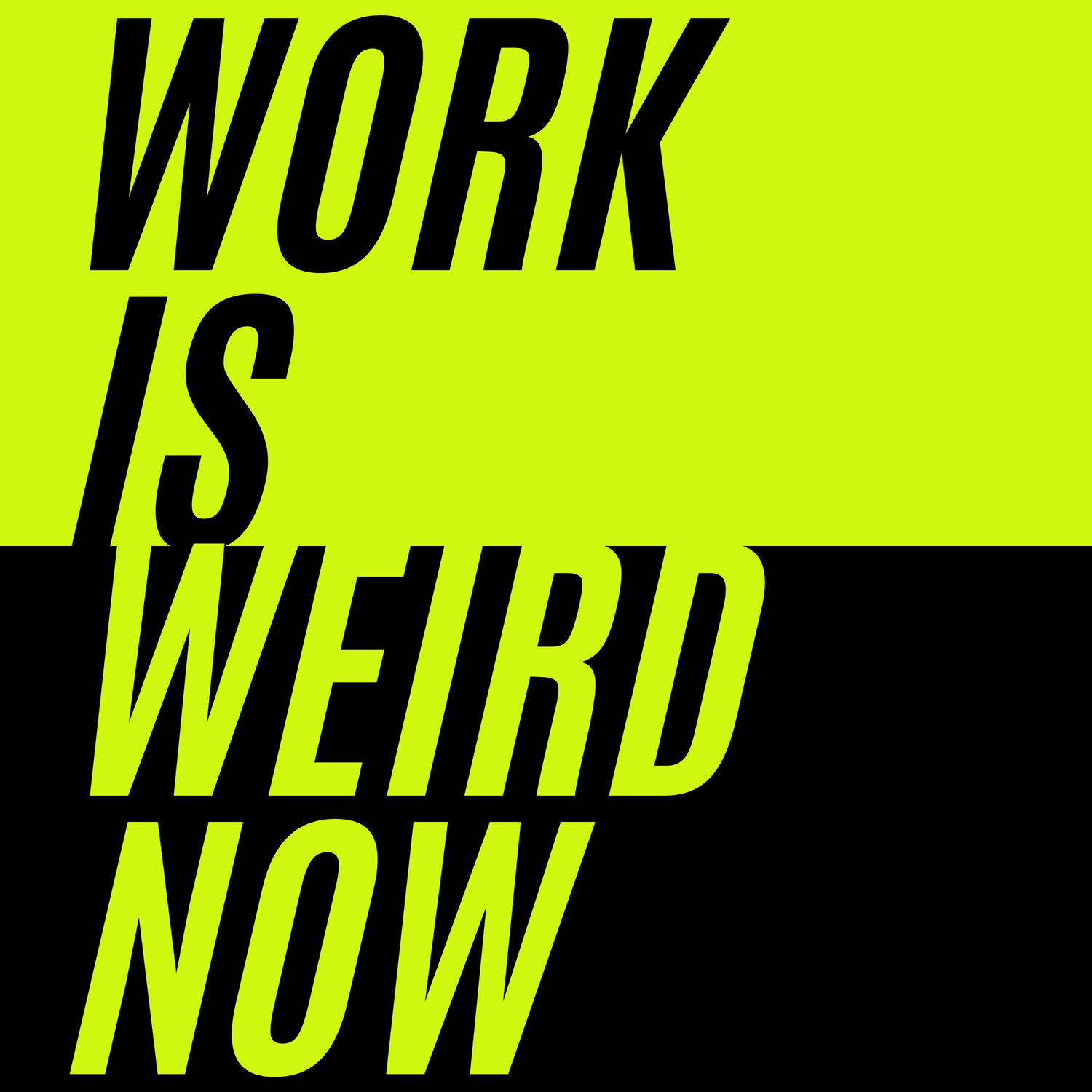Can finance save the world?
Work is Weird Now x Finance Forum with Victoria Gillespie
“Can finance save the world?” is a ridiculous question… until you hear Victoria Gillespie answer it. A seasoned finance leader working at the intersection of sustainability and investment, Victoria joined us for the second episode in our Work is Weird Now Finance Forum series—ahead of her session in London on 7 October.
Spoiler: finance can’t do it alone. But it might be the only function that touches everything needed to make it happen.
Sustainability, de-jargoned
Sustainability gets bundled into ESG, impact, purpose—then drowned in acronyms. Victoria brings it back to a simple audit concept: going concern.
“At its core, sustainability asks: will this business still exist in 12 months—and deserve to?”
That lens widens the conversation from carbon to how a company behaves: fair tax, ethics, policies people are proud of, the partners you choose, and whether customers and employees want to stay with you.
Why finance is pivotal
Finance is the system of record and the system of truth. Procurement, risk, legal, HR, investor relations—all roads lead to the numbers. That gives finance three unique powers:
Tie financial + non-financial metrics: cost/benefit meets people/planet.
Spot cause and consequence: where money flows, behaviour follows.
Set guardrails: evidence, accreditation, and the discipline to report transparently.
Politics is noise. Your North Star is the business.
In a world of shifting headlines, Victoria’s advice is to ignore the culture war and anchor to what your business is for—then embed practices that make that purpose durable: compassionate leave, volunteer days, smarter procurement, training. Often the “trade-off” isn’t a trade-off at all:
Companies that introduced volunteer days saw higher staff happiness and productivity—and had real metrics for their annual report. Win–win.
Where to start (especially for SMEs)
You’re probably doing more than you think.
Audit what exists: skim your annual report; list current policies and practices.
Pick one practical move: volunteer days, flexible leave, supplier standards, transparent pay bands.
Measure something human: regrettable turnover, internal mobility, training hours, supplier improvements—alongside cost and margin.
Tell honest stories: case studies + data beat slogans every time.
Greenwashing vs. brave transparency
Targets change because the landscape changes. That’s not (necessarily) greenwashing.
“Be clear, show your workings, and—if you have to revise a commitment—explain why and what you’ll do next.”
Equally, don’t hide good practice for fear of criticism. Share what’s working so others can copy it.
Policy tailwinds (and time)
From the UK’s Sustainability Disclosure Requirements to pension unlocks for impact funds, regulation is slowly making it easier to invest in the real economy. But transitions take time. Turning “brown to green” isn’t a flip of a switch; it’s a plan with milestones investors can understand.
Careers in sustainable finance
The route is rarely linear. Victoria’s own path zig-zagged through audit, governance, and best practice.
Block the noise. Pick a sub-domain (risk, reporting, product, supply chain) and go deep.
Keep it simple. Every idea should pass the what/why/how/when test.
Join communities (professional bodies, peer groups) for tools and standards.
The 5–10 year shift we need
Sustainability should sit where compliance sits today: everybody’s job. Finance leads on integration, but success looks like cross-functional ownership—shared training, shared metrics, shared wins.
So… can finance save the world?
“It can—with help from others.”
Finance provides the scaffolding: incentives, evidence, accountability. The building gets finished by operations, product, people teams, customers, suppliers—and honest leadership.
🎟️ See Victoria at the Finance Forum (7 Oct): Get your tickets at finance-forum.com
👤 Connect with Victoria: LinkedIn
